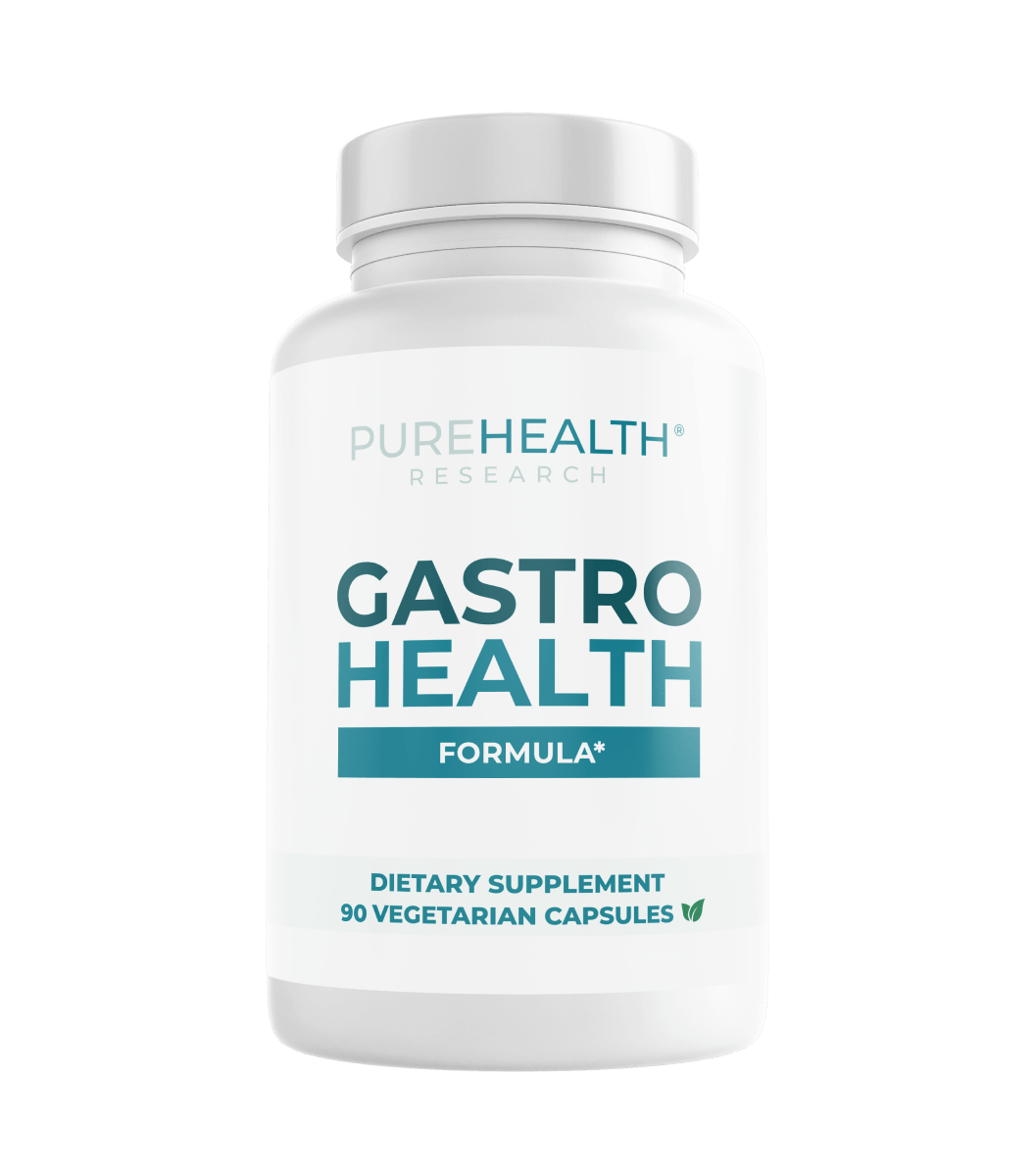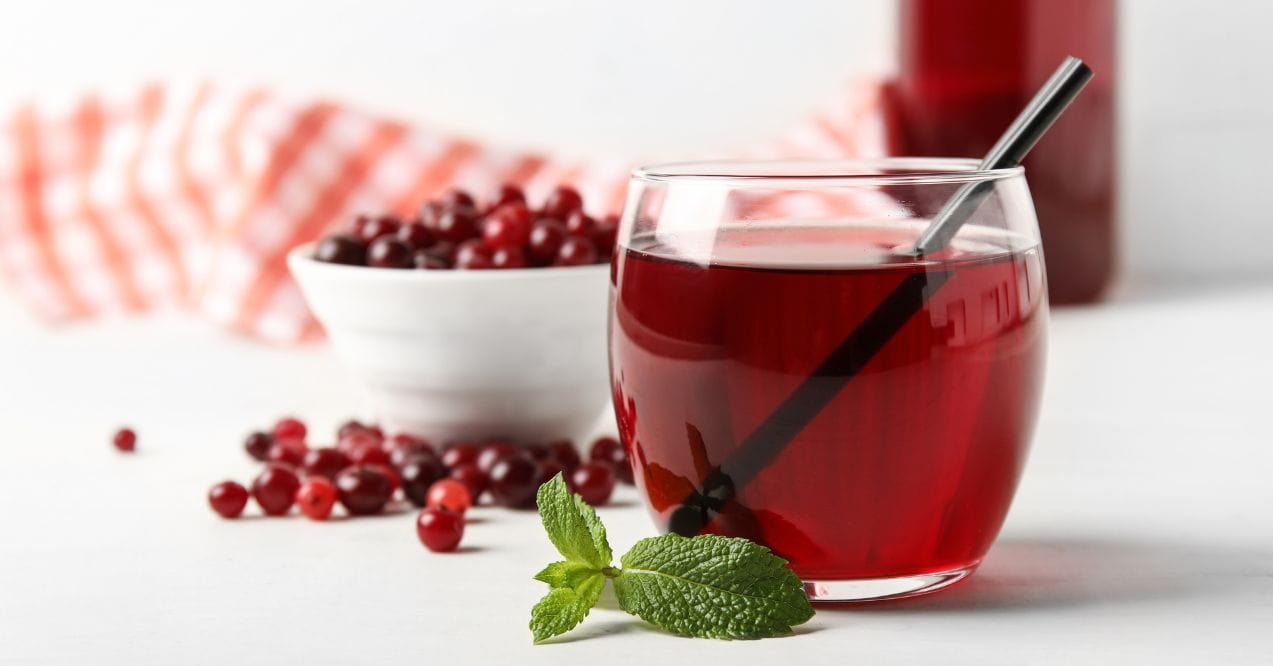Does Milk Help With Heartburn?
Did you know heartburn affects about 20% of the US population? The big question is, does milk help with heartburn? This article delves deeper into this issue.
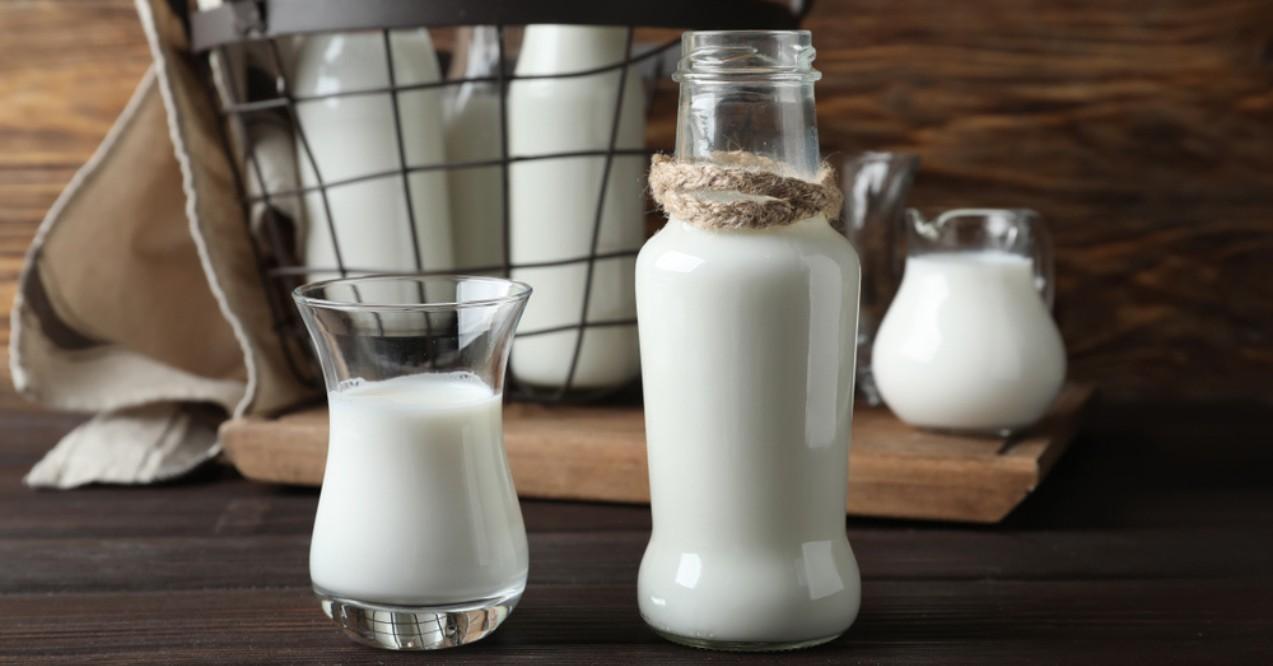

Heartburn is a familiar foe for many. Its unpleasant symptoms drive countless individuals to search the internet, seeking varied methods to alleviate the burn. Among the myriad of suggestions, one remedy frequently surfaces: milk. But does milk help with heartburn? To empower you with a clear understanding, we will delve into the intricacies of this relationship.
Let’s start with this condition. Heartburn manifests when stomach contents, mixed with gastric acids, surge into the esophagus. This results in an unmistakable burning chest sensation, prompting many to seek both immediate and long-term relief. While over-the-counter remedies may offer a quick fix, it’s pivotal to explore natural alternatives and understand the underlying dynamics.
Milk, hailed traditionally as a soothing agent, has been at the center of heartburn debates. But is it truly a panacea? The interaction between milk and heartburn isn’t black and white. In this article, we provide a comprehensive analysis, shedding light on the verifiable facts about milk’s efficacy against heartburn.
What Causes Heartburn Symptoms?

Heartburn – it’s a sensation many of us are all too familiar with. For some, it might be a fleeting discomfort, easily dismissed. Yet for others, it’s an unmistakable, jarring experience that demands attention. You might be wondering, is that uneasy feeling in your chest genuinely heartburn? Knowing the signs is the first step to clarity. Be on the lookout for:
- A sharp, sour taste in the mouth – often a sign of acid reflux.
- A distinct burning sensation centralized in the chest.
- A raspy or hoarse voice.
- Feelings of nausea or bloating.
- Bad breath.
- Hiccups or coughs that keep coming back.
Note: These symptoms could often turn bad or worse when lying down, eating, or bending over.
But what sparks these unsettling symptoms? Sometimes, the triggers are elusive, leaving one puzzled. However, certain factors and habits can play a pivotal role:
- Being overweight.
- Smoking.
- Consumption of certain foods or drinks – think alcohol, spicy dishes, fatty foods, tomatoes, or coffee.
- Stress and feelings of distress.
- Pregnancy.
- A hiatal or hiatus hernia, where part of the stomach pushes up into the chest.
- Frequent use of non-steroidal anti-inflammatory pain relievers like ibuprofen.
- Increase in some hormones in the body like estrogen and progesterone.
- Excess production of stomach acids.
- Functional misalignment of the lower esophageal sphincter (LES).
By understanding the roots of heartburn and its triggers, you empower yourself to take the next steps – whether that’s a lifestyle change, a dietary adjustment, or seeking professional advice.
Does Milk Actually Help With Heartburn?
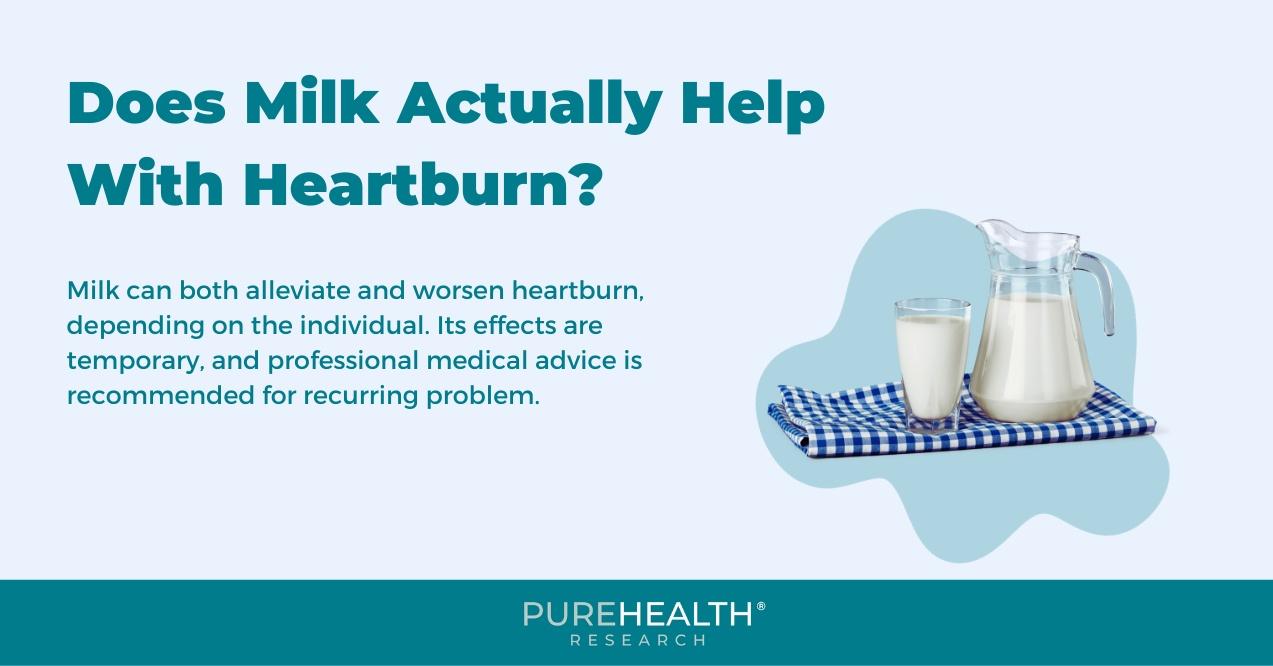
Navigating the maze of home remedies for heartburn, it’s common to stumble upon the age-old question: does milk help with heartburn? The answer isn’t as straightforward as you might think.
Milk and its Components
- Calcium: One serving of milk is a notable source of calcium. Specifically, when you drink about 244 ml (one cup) of milk, you intake an approximate 21-23% of the Daily Value (DV) for calcium, though this can vary based on the type of milk. Calcium in milk may act as a temporary acid-neutralizing agent, providing short-lived relief to some individuals.
- LES Muscle Interaction: Calcium, like what’s found in milk, helps strengthen a muscle in our esophagus called the LES. This muscle acts like a door, keeping stomach acid from coming back up into our throat. The calcium in milk can make this “door” work better and push any acid back into the stomach, which can help some people with heartburn. However, it’s worth noting that for some, milk can also cause the stomach to produce more acid, which might make heartburn feel worse.
- Protein: Milk provides about 8 grams of protein per 245 m serving. However, while protein stimulates gastrin secretion, the role of milk protein in heartburn management remains complex. Gastrin can both boost LES contraction and, in high amounts, potentially weaken it.
To conclude, milk’s potential effects on heartburn are multifaceted. While some components might offer temporary relief, it’s vital to understand that individual experiences may vary. If heartburn is a recurring issue for you, consult a healthcare professional for personalized advice.
What Foods May Neutralize Stomach Acid?
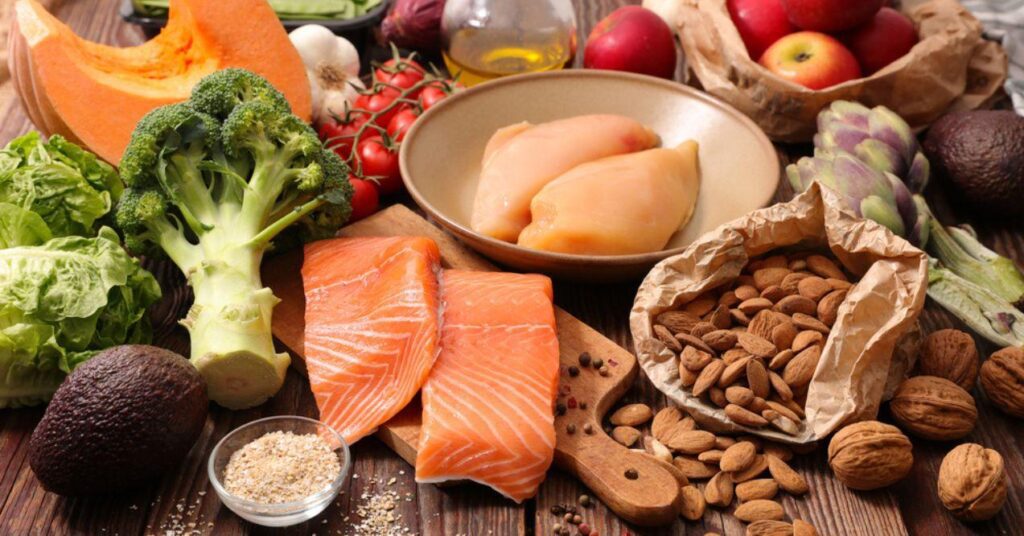
Experiencing heartburn symptoms? Your diet could play a significant role in providing relief. Here’s a curated list of foods believed to help with heartburn:
- Vegetables: Naturally low in sugar and fat, veggies can decrease acid reflux risks. Top Picks: broccoli, green beans, cauliflower, potatoes, leafy greens, asparagus, and cucumbers.
- Ginger: A renowned anti-inflammatory agent, ginger aids with various digestive issues, from nausea to indigestion. Its property of promoting gastric emptying makes it a go-to for combatting stomach acids. Usage Tip: Infuse in tea or blend in smoothies.
- Oatmeal: A powerhouse of fiber, oatmeal aids in absorbing stomach acids, thereby minimizing reflux episodes. A high-fiber diet has been correlated with a reduced risk of acid reflux.
- Lean Meats & Seafood: Less likely to trigger reflux due to their low-fat content. Best Choices: turkey, fish, chicken. Preparation Advice: Opt for poaching, baking, boiling, or grilling.
- Healthy Fats: Contrary to popular belief, not all fats ignite acid reflux. In fact, certain fats are essential for optimal body function. Recommended Sources: walnuts, olive oil, avocados, sunflower oil, flaxseed, and sesame oil. Moderation is key.
In conclusion, while these foods may provide some relief, they aren’t a one-size-fits-all solution. If persistent acid reflux troubles you, it’s always best to seek personalized guidance from a healthcare professional.
Natural Treatments for Heartburn: Milk Alternatives
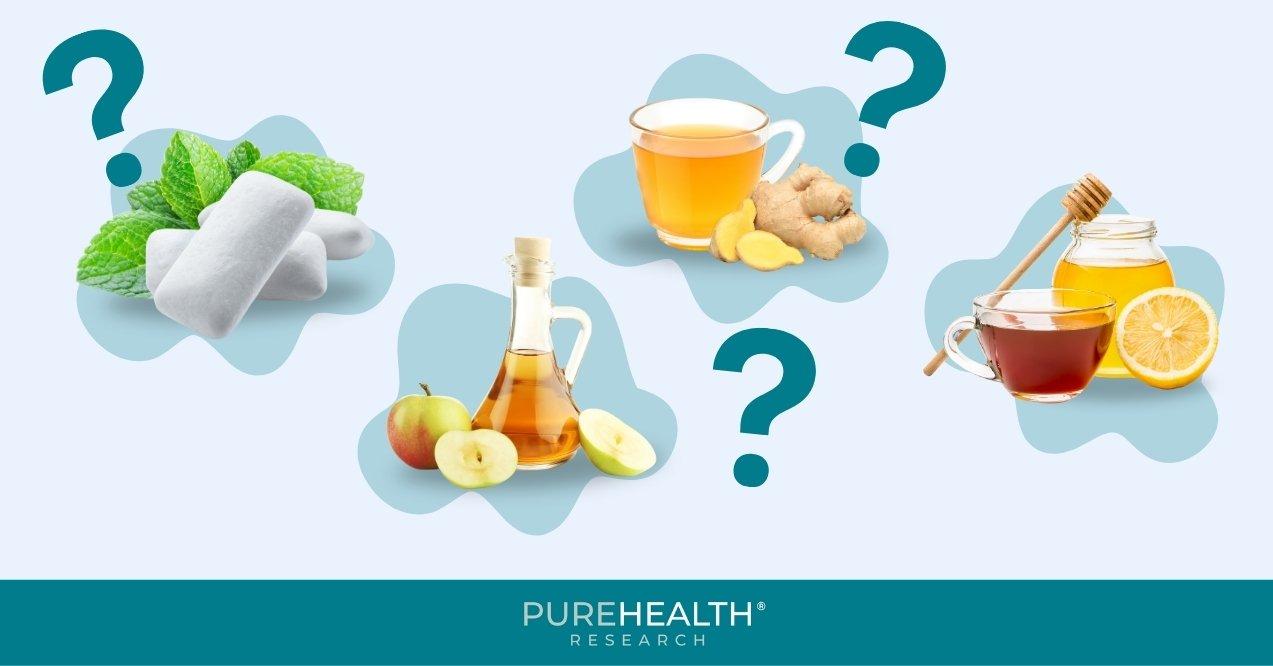
You may still be wondering, how does milk help with heartburn? It would help to know that apart from milk, there are other varieties of natural treatments you can take advantage of to ease your heartburn symptoms. They may be in the form of home remedies, or herbal products. However, it would be best to remember that, in some cases, there might be conflicting pieces of evidence on whether any of the natural treatments discussed in this section can treat heartburn. Despite the case, it can’t hurt to try.
1. Chewing Gum
When you chew gum when having heartburn, it might reduce inflammation. The result is a soothed esophagus. When chewing gum, your saliva becomes more alkaline, ideal for neutralizing stomach acids. However, the effects can vary. Results may differ due to the type of gum you chew.
Let’s say all factors are kept constant. When you chew gum, it reduces acid reflux in the esophagus. Since chewing increases saliva production, you get to swallow more alkaline saliva. Therefore, you quickly get rid of acidity in your mouth. The effects can be two-fold when chewing bicarbonate gum.
The gum can effectively neutralize the acid in your esophagus since your saliva contains some. Chewing the bicarbonate gum increases saliva production and the quantity of bicarbonate in your saliva. The neutralizing effect then amplifies.
Experts indicate that when you chew sugar-free gum for approximately 30 minutes after eating, you can reduce the incidence of acid reflux. Gum infused with nutrients like peppermint may not be great for easing the symptoms because they could easily lead to increased acid reflux. In addition, chewing sugar-free gut after meals helps reduce cavities.
2. Apple Cider Vinegar
Even though many people use diluted apple cider vinegar to ease acid reflux symptoms, there isn’t sufficient research to back this up. The mother of home remedies, a product of fermented organic and raw apple cider vinegar, is believed to be rich in pectin, proteins, and enzymes. Because of these organic nutrient varieties, apple cider vinegar has become the gold standard for treating acid reflux.
However, there are exceptional cases where some people experience acid reflux due to low stomach acid levels. Therefore, some proponents believe it could introduce more acid into your stomach, aiding digestion. However, this also accompanies concerns that, sensing an increase in acid, your body might shut down its natural acid production process.
It would help if you took caution not to drink highly concentrated apple cider vinegar because it will easily irritate your food pipe and harm your teeth. If you want to try it, the recommended dosage should be 1-2 teaspoons of apple cider vinegar in a glass of warm water.
Additionally, apple cider vinegar might be a fantastic way to help break up kidney stones and support blood sugar levels, the immune system, and gut microbiome health.
3. Ginger Tea
As mentioned above, ginger can be an excellent natural treatment for reducing acid reflux. However, there is a need for more research on this issue. Ginger has been a reliable treatment option for its multiple medicinal properties for centuries. One of the most popular ones is its ability to aid digestion.
More research is necessary on the benefits of ginger in relieving acid reflux because many current studies are centered on ginger’s nausea-alleviating properties. Despite this fact, ginger remains widely used for multiple digestive issues. Because of its anti-inflammatory properties, it is an ideal natural solution for digestive disorders.
In case you want to relieve yourself of stomach acid symptoms, you can add ginger to your tea or buy ginger-infused tea. Drinking ginger tea will offer incredible benefits, including:
- Reducing excess stomach acid
- Accelerating your digestive process
- Boosting your food absorption rate through the regulation of GI tract juices flow
- Tightening the LES, which prevents backflow of stomach contents
In addition, when you drink ginger tea, you will feel a calming effect in your abdomen. At the same time, it will significantly reduce stomach acid production. For the best results, ensure that you consume caffeine-free ginger tea. Add some honey and lemon juice for a better effect. The honey would be a great natural sweetener.
4. Lemon and Honey in Warm Water
It is essential to mention that using lemon to treat stomach acid can easily be met with mixed signals. On one hand, experts believe that lemon and other citrus fruits could quickly boost the severity of stomach acid reflux. Conversely, others contend that the use of lemon water could aid in relieving the symptoms of stomach acid reflux. The truth is, both sides could be right.
When you mix lemon and honey in water, you can enjoy many health benefits. In some cases, lemon water could help reduce fat accumulation. This is great because being overweight could largely contribute to acid reflux. If this concoction can help reduce fat cells, in small quantities, it might help fight stomach acid over time.
Lemon is also known to lower arterial pressure, especially for those people with cardiovascular and cholesterol problems. This fruit is rich in vitamin C (ascorbic acid), a vital antioxidant that aids in protecting your body against cell damage. Such cell deterioration could be a result of stomach acid reflux.
Gastro Health Formula for Heartburn
Heartburn can transform the joy of eating into a daunting challenge. If you’ve felt that searing burn, been held hostage by nausea between meals, or hesitated before every bite, you’re not alone.
PureHealth Research introduces the game-changer: The Gastro Health Formula recommended by Dr. Holly Lucille, ND. A revolution in heartburn and acid reflux management. It safely forms a neutral floating gel over your stomach acid providing a barrier, so it can’t backwash into your chest and cause heartburn. People who experienced this, just like our other supplements for gut health and digestion, are already sharing their stories. In addition, potent compounds target the root causes, alleviate symptoms, and promote healthy tissue regeneration.
✓ Natural Blend: Crafted with unique ingredients, hand-picked for their potency.
✓ Stress Reduction: Tackles one of the hidden triggers of reflux.
✓ Trusted by Thousands: A community of satisfied customers swears by its effectiveness.
Always follow the recommended dosage when using Gastro Health Formula. Those under 18, expecting mothers, or individuals with known medical conditions should consult with a healthcare expert before use.
Experience mealtime as it should be—joyful and without discomfort. Secure your bottle today, and be part of the heartburn revolution!
Final Thoughts
Diving deep into age-old remedies, we explore a burning question: Can milk truly soothe heartburn? Here’s what the research suggests.
Heartburn: A result of stomach acids flowing back into the esophagus, often intensified by certain foods, being overweight, and stress.
Milk’s Role: Milk can offer temporary relief due to its calcium content. However, its relationship with heartburn is complex and varies by individual.
Alternative Remedies:
- Vegetables, ginger, oatmeal, and lean meats can counteract stomach acid.
- Sugar-free chewing gum, diluted apple cider vinegar, and ginger tea potentially offer relief.
Understanding heartburn and its remedies is a step towards better health. Always consult with a healthcare expert to ensure the safest and most effective treatment path.
Sign up for our Healthy Living newsletter!
Advertisement. This site offers health, wellness, fitness and nutritional information and is designed for educational purposes only. You should not rely on this information as a substitute for, nor does it replace, professional medical advice, diagnosis, or treatment. If you have any concerns or questions about your health, you should always consult with a physician or other health-care professional. Do not disregard, avoid or delay obtaining medical or health related advice from your health-care professional because of something you may have read on this site. The use of any information provided on this site is solely at your own risk.
